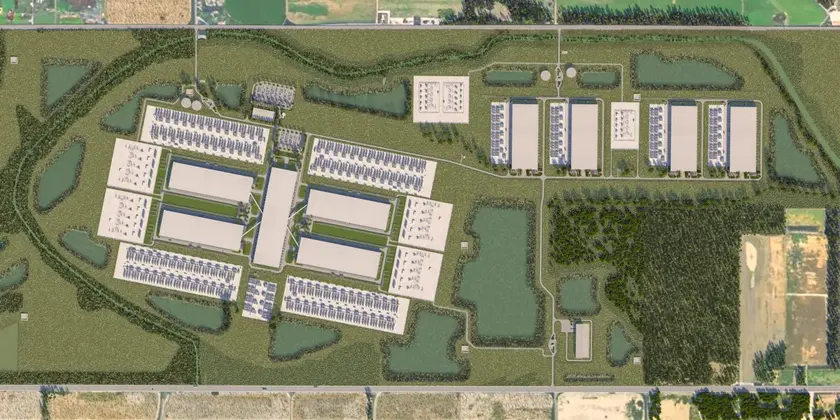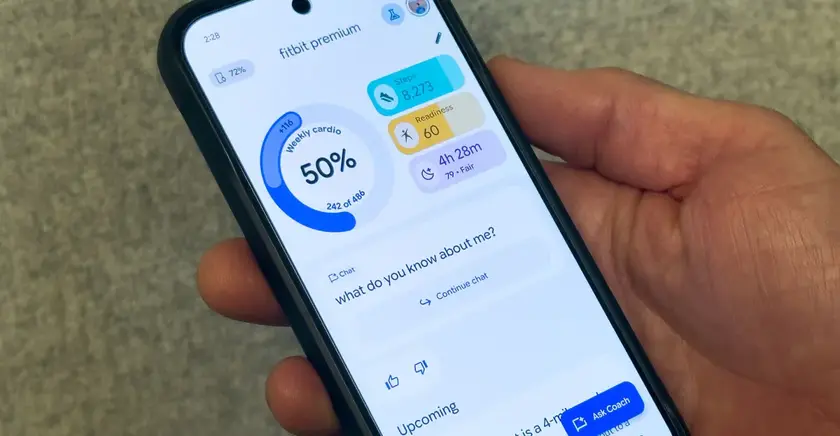T4K3.news
Meta's Louisiana data hub moves forward
A new $10 billion data center in Richland Parish advances with gas-fired power and solar storage plans, prompting questions about costs and community impact.

Meta builds a massive data center complex in Richland Parish powered by new gas plants, prompting questions about costs and local impact.
Meta bets 10 billion on a Louisiana Hyperion data hub
In Richland Parish, Louisiana, Meta has begun a $10 billion project to raise a nine-building data center complex that will house thousands of servers and cover more than 4 million square feet. The rollout includes plans for what Meta calls a computing capacity of two gigawatts now, with the potential to grow to as much as five gigawatts to train large language models. Entergy will add three gas-fired turbines with a combined capacity of about 2.3 gigawatts, the first major expansion of gas generation in decades. Meta has promised to fund power costs for the first 15 years and to help build 1.5 gigawatts of solar and battery storage across the state. Regulators approved the deal in August, signaling a possible template for future data center energy builds.
Locals are astonished by the scale and the potential impact on the rural economy. The project’s size and the energy demand it will create have farmers and residents weighing jobs and growth against concerns about rate increases, water use, and land disruption. Nationally, hyperscale centers are multiplying, with the belief that they spur investment but also drive up energy costs for households and small businesses. Louisiana lawmakers have also widened the energy definition to include natural gas as part of green energy, a move that complicates debates over environmental goals. Experts say the full picture will depend on how the grid adapts and how much renewables and storage can offset gas usage as the project progresses toward 2030 and beyond.
Key Takeaways
"We are making all these investments because we have conviction that superintelligence is going to improve every aspect of what we do"
Zuckerberg on the scale and purpose of the investment
"This deal could signal to other states how data centers should be governed and operated"
Louisiana regulator Davante Lewis on precedent
"How will the water be shared"
Concern raised by Margie Vicknair-Pray of the Sierra Club in Louisiana
"The problem here is that this is going to set precedent"
Critics warning about long-term impacts
The Hyperion effort highlights a broader trend where giant tech investments collide with local energy policy. Utilities become gatekeepers, and the terms of a private deal can set standards for government oversight and ratepayer risk. Critics worry that a nonpublic contract could lock in costs for years and push communities to bear the downside of expensive growth while private players reap the upshot. Proponents point to rural development, new jobs, and state revenue as reasons to welcome the project, insisting that careful regulation can keep costs in check and accelerate cleaner energy integration over time.
Highlights
- Hyperion is a data center dream that tests the grid's limits
- This deal could signal to other states how data centers should be governed and operated
- How will the water be shared
- The problem here is that this is going to set precedent
Hyperion data center risks for rural communities
The project ties private capital to large gas generation with long-term costs for ratepayers, raises questions about water use and land disruption, and hinges on a nonpublic contract. The legal redefinition of green energy to include gas could dilute climate goals while setting a nationwide precedent.
The coming years will test whether such bets pay off for communities and the climate.
Enjoyed this? Let your friends know!
Related News

Ranking all FBS programs for the 2025 season

American Giants Face the Great Shrinking

AI funding grows

Trial begins against Meta leadership over privacy violations

OpenAI halts ChatGPT feature after privacy leak

Meta investors launch $8 billion lawsuit

FPL GW1 Differentials Highlighted

AT&T CEO issues strong message on employee engagement
